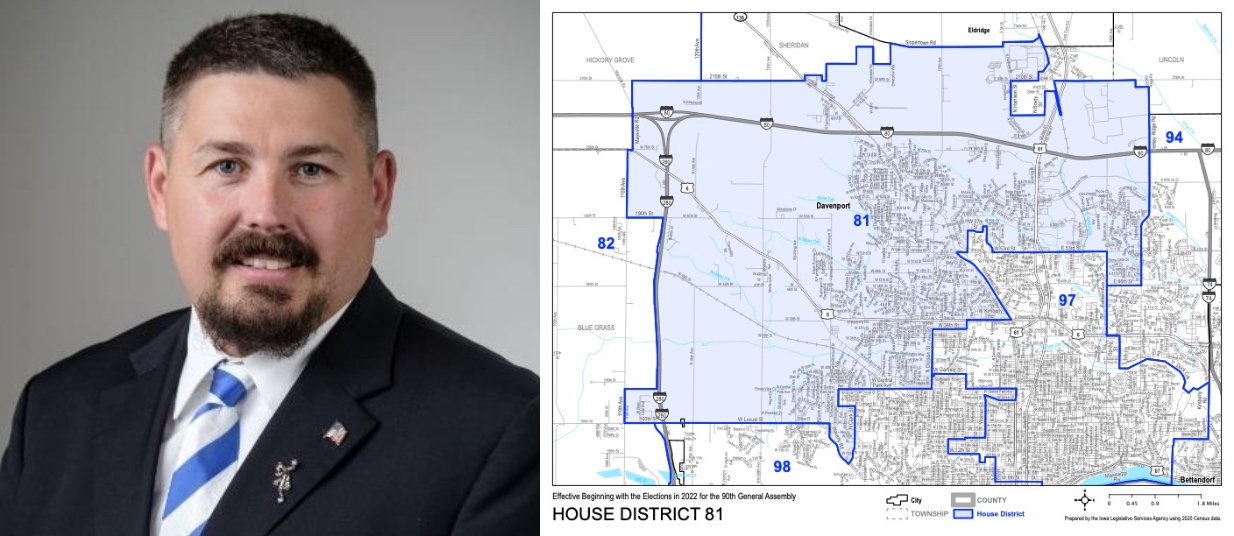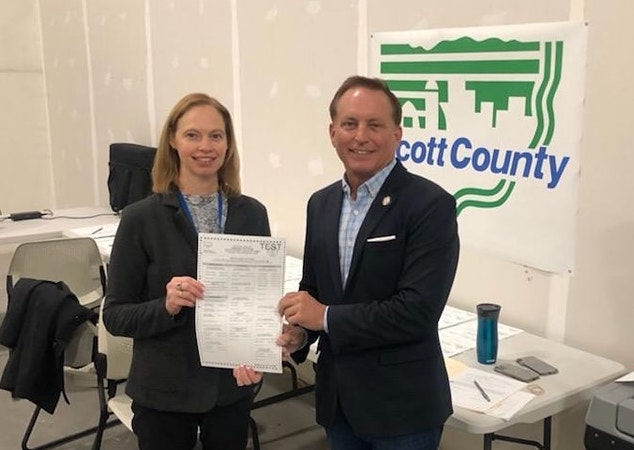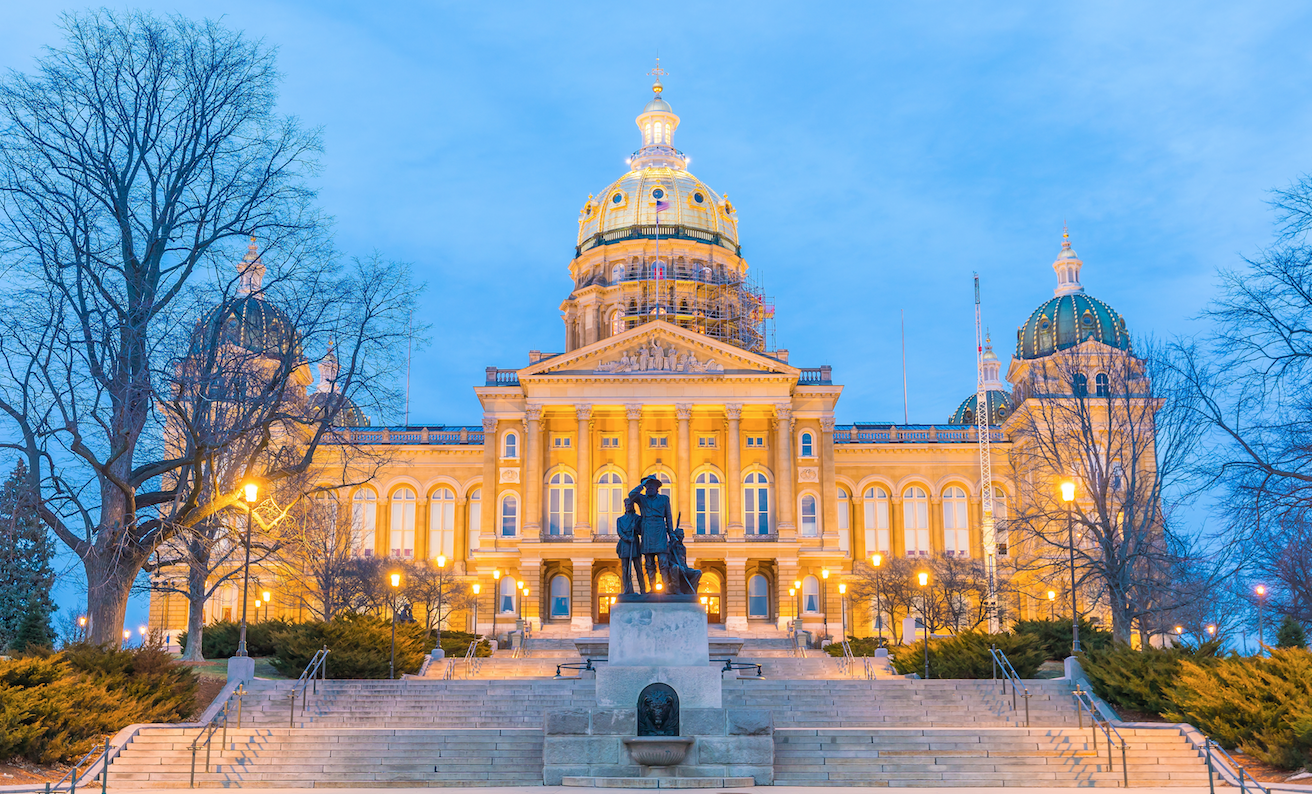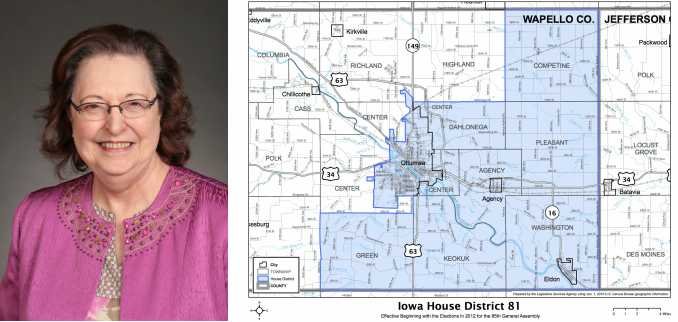Democrats currently hold just 36 of the 100 Iowa House seats, the party’s smallest contingent in the chamber for more than 55 years. But two and a half months before the November election, the party is already set to pick up one Iowa House seat. Davenport school board president Dan Gosa is the only candidate on the general election ballot in House district 81, covering parts of northwest Davenport in Scott County.
GOP State Representative Luana Stoltenberg won this open seat by eleven votes in 2022, after a controversial series of recounts. She announced in January that she would not seek re-election, and Republicans were unable to recruit anyone to run here. No independent or third-party candidate filed before the August 24 deadline.
The district leans Democratic; according to a map Josh Hughes created in Dave’s Redistricting app, Joe Biden received 53.4 percent of the vote in precincts now part of House district 81, while Donald Trump received 44.5 percent. The latest official figures show the district contains 7,582 registered Democrats, 5,812 Republicans, 9,342 no-party voters, and 173 Libertarians.
Continue Reading...









